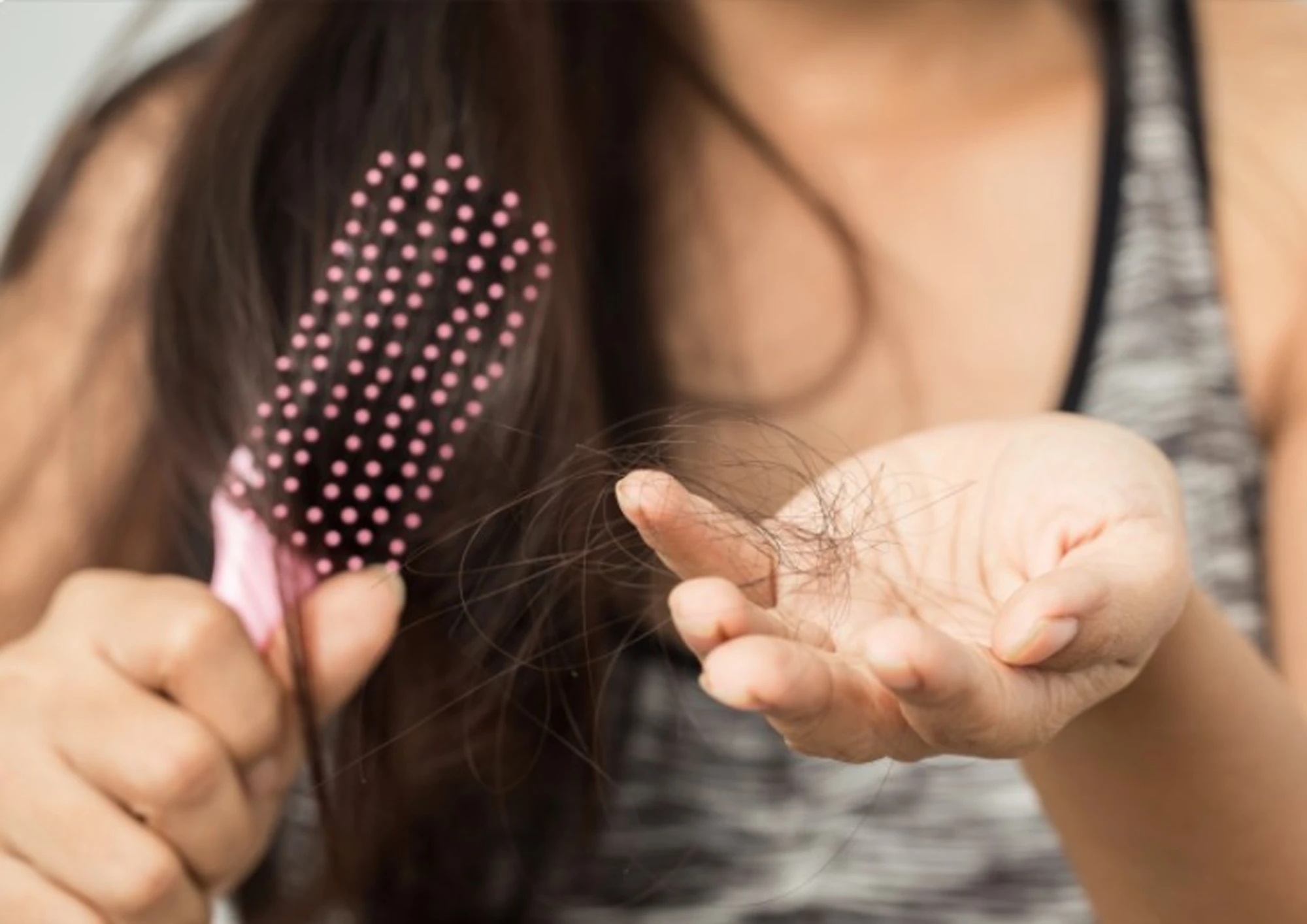WHAT IS FEMALE PATTERN HAIR LOSS?
Female pattern baldness, also known as androgenetic alopecia, is similar to male pattern baldness, except that women lose their hair in a different pattern from men. Hair loss in women is normal, especially as you age; up to two out of three of women experience hair loss after menopause and less than half of women will make it past 65 years of age with a full head of hair.
Women with female pattern baldness usually experience general hair thinning, which affects the volume of their hair. The first signs of female pattern baldness may be a widening part or the feeling that the hair does not feel as thick as usual. Although the scalp may be visible, the hairline usually does not recede.
WHAT IS FEMALE PATTERN HAIR LOSS?
Female pattern baldness, also known as androgenetic alopecia, is similar to male pattern baldness, except that women lose their hair in a different pattern from men. Hair loss in women is normal, especially as you age; up to two out of three of women experience hair loss after menopause and less than half of women will make it past 65 years of age with a full head of hair.
Women with female pattern baldness usually experience general hair thinning, which affects the volume of their hair. The first signs of female pattern baldness may be a widening part or the feeling that the hair does not feel as thick as usual. Although the scalp may be visible, the hairline usually does not recede.

WHAT CAUSES FEMALE PATTERN HAIR LOSS?
GENETICS
Genetics appear to be a significant factor in the cause of hair loss for women. Women can inherit the gene for pattern baldness from either parent.
Female pattern baldness is largely thought to occur due to genetics, but it may also develop due to an underlying condition that affects the production of the hormone androgen, a hormone that plays a role in pattern baldness. Tumors of the pituitary gland or ovary, which secrete androgen, may also lead to hair loss.
HORMONES
Hormones are the most common cause of hair loss for both women and men. In both sexes, the specific hormone responsible for hair loss is the same: dihydrotestosterone (known as “DHT”), a hormone that your body produces as a byproduct of testosterone. Both men and women have testosterone.
Our body uses testosterone as a precursor for several other hormones. One of these hormones is DHT. DHT affects the hairline by miniaturizing hair follicles, causing the hairs to stop growing as they normally would and eventually fall out.
MENOPAUSE
Because menopause affects your production of several hormones, it can often trigger hormonal hair loss.
During menopause, your body’s production of estrogens and progestins can decline. Alongside this decline in female hormone production, your sensitivity to male hormones such as DHT can increase. If you’re genetically sensitive to DHT, this can affect your hairline and hair thickness.
Menopausal hair loss usually happens between the ages of 50 and 60, with most women prone to hair loss noticing thinning hair. It can also occur in your 30s and 40s, depending on the specific age at which you begin to enter menopause.
THYROID ISSUES
Both hypothyroidism (under-active thyroid) and hyperthyroidism (overactive thyroid) can trigger hair loss. This is because our thyroid plays a role in the development of new strands of hair at the root, helping your body maintain a consistent supply of new hairs.
If your thyroid isn’t working as it should, the hairs you normally lose each day may not be fully replaced by new hair growth. It can also cause your hair to become weak, dry and brittle.Thyroid issues usually cause diffuse hair loss across your entire scalp, rather than specific areas around your hairline, temples or crown.
Fortunately, hair loss caused by thyroid issues is usually temporary. Upon identifying and treating the underlying issue, your hair will slowly regrow to its previous thickness and length.
STRESS
Hair loss caused by stress is called telogen effluvium and it is usually temporary. It mostly results in the sudden thinning of your hair across your entire scalp, resulting in more hairs on your pillow, in the drain catch or on your hairbrush.
Like other forms of temporary hair loss, telogen effluvium affects your hairline by forcing hairs into the telogen phase, the final phase of your hair’s growth cycle. This causes your hairs to fall out without hairs growing in to replace them. Telogen effluvium hair loss is usually noticeable two to three months after a stressful event or a lifestyle change that triggered it.
RAPID WEIGHT LOSS
Although losing weight slowly and consistently usually won’t affect your hair, rapid weight loss can and often does cause some degree of hair thinning.
Rapid weight loss affects your hairline like stress does; through telogen effluvium. A significant reduction in your intake of calories and micronutrients can stress your body and trigger temporary hair loss. Hence, those who would be most affected by this would be the individuals who use extremely restrictive diets to lose weight quickly.
Thinning hair from rapid dieting usually isn’t permanent. Over time, adjusting your diet, changing your habits and using medications to promote healthy hair growth should bring your hair back to normal.
IRON DEFICIENCY Anemia
Although losing weight slowly and consistently usually won’t affect your hair, rapid weight loss can and often does cause some degree of hair thinning.
Rapid weight loss affects your hairline like stress does; through telogen effluvium. A significant reduction in your intake of calories and micronutrients can stress your body and trigger temporary hair loss. Hence, those who would be most affected by this would be the individuals who use extremely restrictive diets to lose weight quickly.
Thinning hair from rapid dieting usually isn’t permanent. Over time, adjusting your diet, changing your habits and using medications to promote healthy hair growth should bring your hair back to normal.
Iron deficiency hair loss causes the same type of diffuse thinning as hormonal hair loss and telogen effluvium, which means that it is most probably the result of a hormonal imbalance or stress.
Iron deficiencies can occur due to numerous reasons, from a poor diet that is lacking nutrients to a range of intestinal diseases. Many women experience iron loss during their period because of the bleeding, making this form of hair loss quite common in premenopausal women.
As your iron levels return to the normal range, you’ll grow back the hair your body shed as a result of its iron deficiency.
QUESTIONS?
Whatsapp 98207257 or email us at [email protected]

